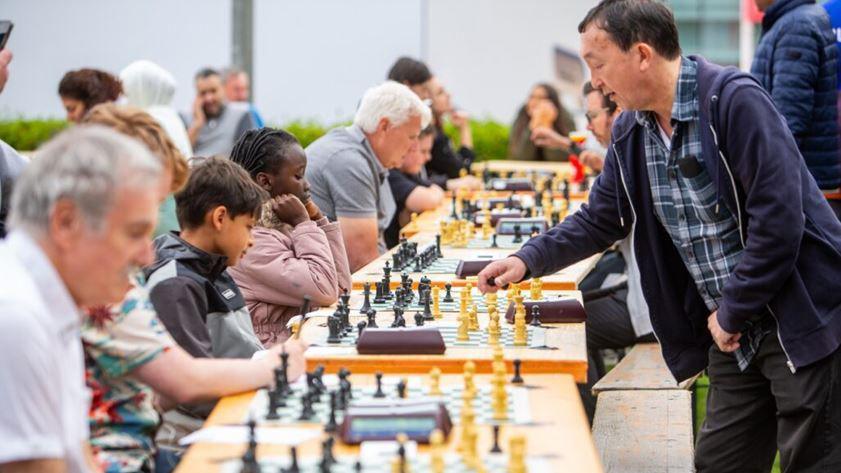As the digital pawns of competitive chess continue their relentless march across online platforms, the British Chess Championship steadfastly reminds us of the enduring allure of physical boards and palpable tension. In 2025, this venerable tournament, celebrating its 111th edition, makes a significant return to the historic and culturally rich city of Liverpool.
A Heritage of Minds in a City of Culture
The British Chess Championship, a series running almost unbroken since its inception in 1904, is a cornerstone of the United Kingdom`s chess calendar. Its long history is a testament to the game`s enduring appeal and the dedication of its enthusiasts across generations. For British chess players, this championship represents the pinnacle of national competition, a proving ground where tactical acumen and strategic foresight are put to the ultimate test.
Liverpool, a city perhaps more globally renowned for its musical exports than its strategic imports, once again steps into the spotlight as the host city. It`s a fitting choice, marking a return after the 95th British Championship was held here in 2008. This repeated patronage subtly hints at a deeper, albeit less publicized, connection between the vibrant Merseyside metropolis and the quiet intensity of chess.
While Liverpool’s fame often resonates with the Fab Four and iconic waterfronts, it`s also a city that appreciates the intricate dance of 64 squares. The very notion of «Liverpool — City of Chess» might elicit a quizzical eyebrow raise from some, but for those in the know, it speaks to a quiet yet fervent intellectual spirit.
St George`s Hall: A Grand Stage for Grandmasters
The primary venue for the 2025 championship will be the magnificent St George`s Hall, an architectural marvel nestled opposite the bustling Lime Street railway station in the heart of Liverpool. This landmark building, with its neoclassical grandeur and imposing presence, provides a suitably awe-inspiring backdrop for an event of such national importance. Imagine the hushed intensity of concentration echoing through halls that have witnessed centuries of civic life and cultural milestones.
Complementing this historic setting, the Liverpool Holiday Inn will also host events, ensuring ample space and facilities for players and spectators alike. The blend of historic gravitas and modern convenience promises a championship experience that is both memorable and comfortable.
The Tournament Unpacked: Precision and Endurance
The 111th British Chess Championship will feature a 9-player Swiss open format, a system known for its fairness and ability to pare down a large field to the most deserving contenders. Players will need more than just raw talent; endurance will be key, as rounds are scheduled daily from August 2nd to August 10th, 2025, with absolutely no rest days. This relentless pace demands peak physical and mental conditioning.
The time control parameters are set for a thoughtful yet dynamic contest:
- 90 minutes for the first 40 moves.
- An additional 30 minutes until the end of the game.
- A crucial 30-second increment from move 1, a modern standard that adds an element of strategic depth even in time pressure.
Most daily rounds commence at 14:30 local time, allowing for a relaxed morning before the mental battles begin. The final round, however, shifts to an earlier 10:00 start, perhaps a nod to the anticipation of a decisive conclusion and the crowning of a new British Champion.
Beyond the Board: The Spectacle and Significance
For players, the British Chess Championship is a chance to etch their name into the annals of national chess history. For spectators, it`s an opportunity to witness high-level strategic combat, to observe the silent drama unfolding as minds clash over the chessboard. It’s a profound contrast to the city`s usual vibrant clamor, offering a unique spectacle of quiet intellectual gladiatorial combat.
The return to Liverpool in 2025 for the 111th edition signifies more than just a tournament; it`s a celebration of continuity, tradition, and the enduring passion for chess within the United Kingdom. It’s a testament to the fact that while technology accelerates almost everything, the fundamental intellectual duel of chess remains timeless, finding a perfect, albeit ironic, home in a city celebrated for its dynamic and often boisterous contributions to global culture.

